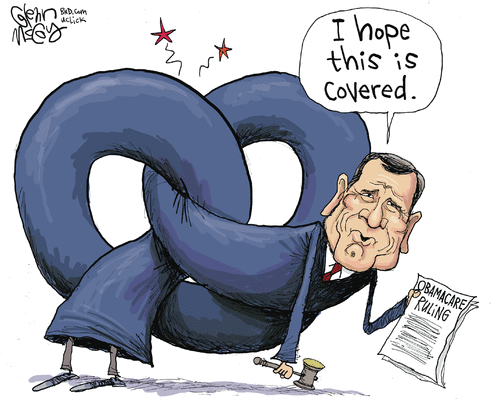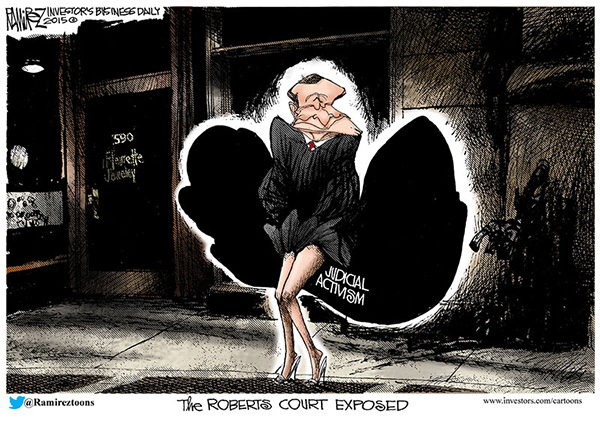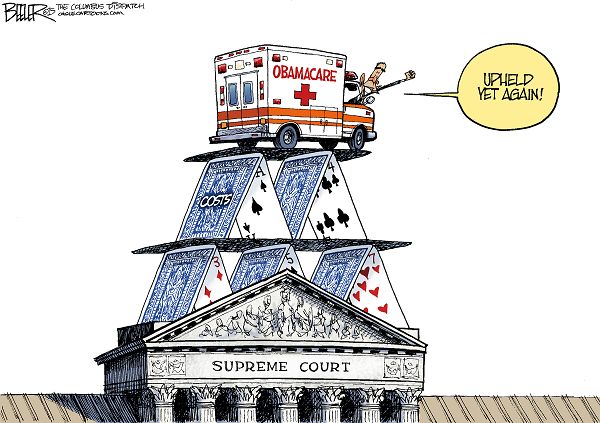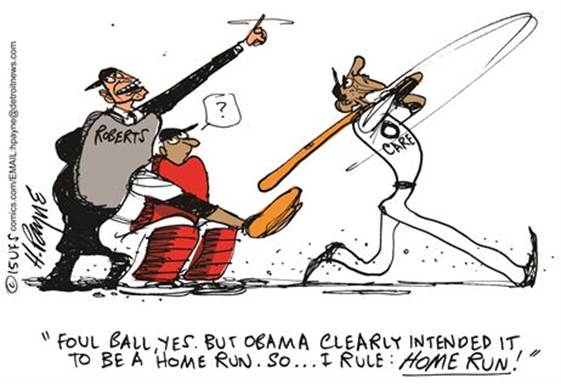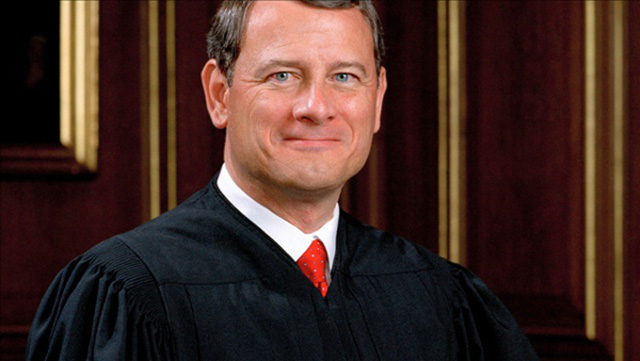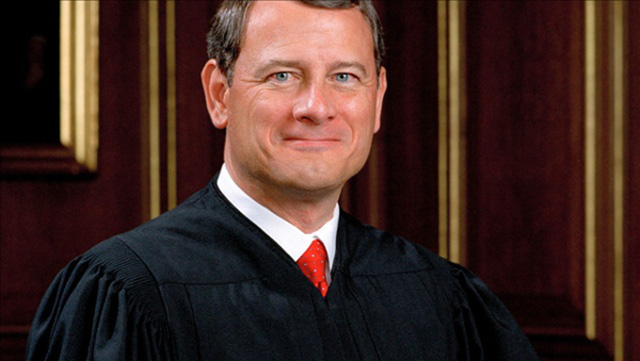
The Roberts Court may hold the power to rewrite the Obamacare law as it wills, but it lacks the logic to persuade a nation.
Perhaps the Patient Protection and Affordable Care Act will attain the enduring status of the Social Security Act or the Taft-Hartley Act; perhaps not. But this Court's two decisions on the Act will surely be remembered through the years. The somersaults of statutory interpretation they have performed ('penalty' means tax, 'further [Medicaid] payments to the State' means only incremental Medicaid payments to the State, 'established by the State' means not established by the State) will be cited by litigants endlessly, to the confusion of honest jurisprudence. And the cases will publish forever the discouraging truth that the Supreme Court of the United States favors some laws over others, and is prepared to do whatever it takes to uphold and assist its favorites.
Justice Antonin Scalia's dissent, as quoted in 'We Should Start Calling This Law SCOTUScare' and 20 Other Epic Scalia Burns, Federalist Staff
The Roberts Court has made a mockery of the Supreme Court.
It is uncomfortable to think about, but our Supreme Court functions in much the same way as Iran's Guardian Council: It is a supralegislative body of purported scholars, distinguished by ceremonial black robes, that imaginatively applies ancient doctrines "conscious of the present needs and the issues of the day," as the ayatollahs over there and over here both put it, deciding – discovering! – what is mandatory and what is forbidden as the shifting currents of politics dictate. The main difference is that the Iranians take their sharia rather more seriously than we take our constitutional law: John Roberts's opinion in Burwell wasn't just wrong – wrong can be forgiven – it was embarrassing, craven, and intellectually indefensible. Antonin Scalia was right to let him have it with both barrels …
Ayatollah Roberts and His Sharia Council, Kevin Williamson, National Review
The Roberts Court has made a mockery of the 'Rule of Law'.
Today's Court has been called "post-constitutional." That's accurate, but it's not complete. Its latest rulings are post-law. The SCOTUScare case, King v. Burwell, was not a constitutional case at all; it was a straightforward matter of statutory interpretation. What made it ostensibly straightforward was the law: a statute that says, "an Exchange established by the State," cannot possibly mean "an Exchange not established by the State." If we were a nation of laws, such a case would never make it to the highest court in the land. But we are a nation of will, the will of a determined political movement, so the law never had a chance.
Let's Drop the Charade: The Supreme Court is a Political Branch, Not a Judicial One, Andrew McCarthy, National Review
The Roberts Court can keep Obamacare alive, but it can't make the law work.
A judicial victory doesn't automatically translate into a political victory, let alone a policy success. Once they've quaffed their celebratory champagne, the president and White House staff will need to suit up and get ready to play some hard-nosed defense. Here's why…
America's Obamacare Nightmare is Just Beginning, Robert Moffit, National Interest
Cartoonists’ View of the Roberts Court:
